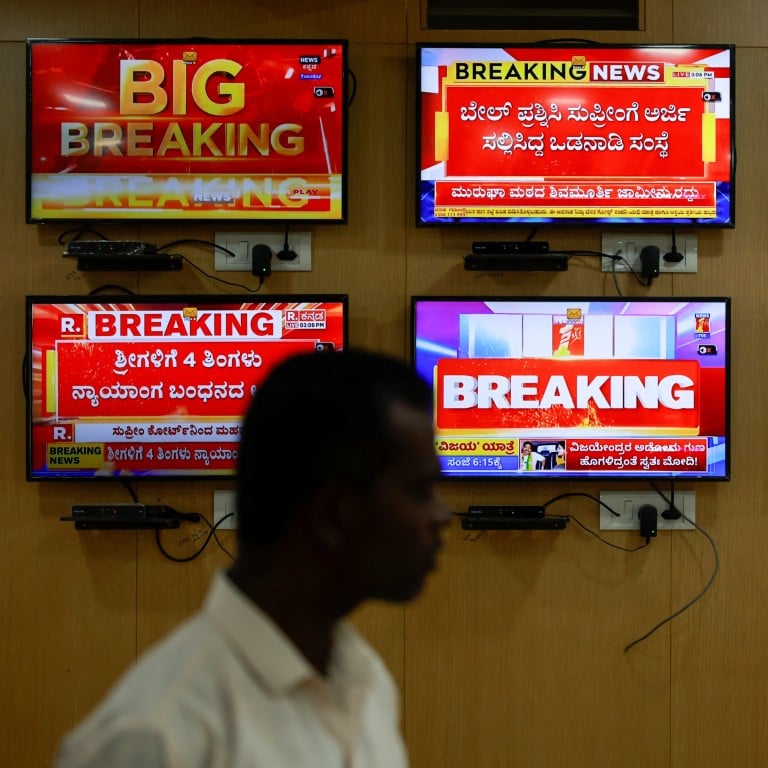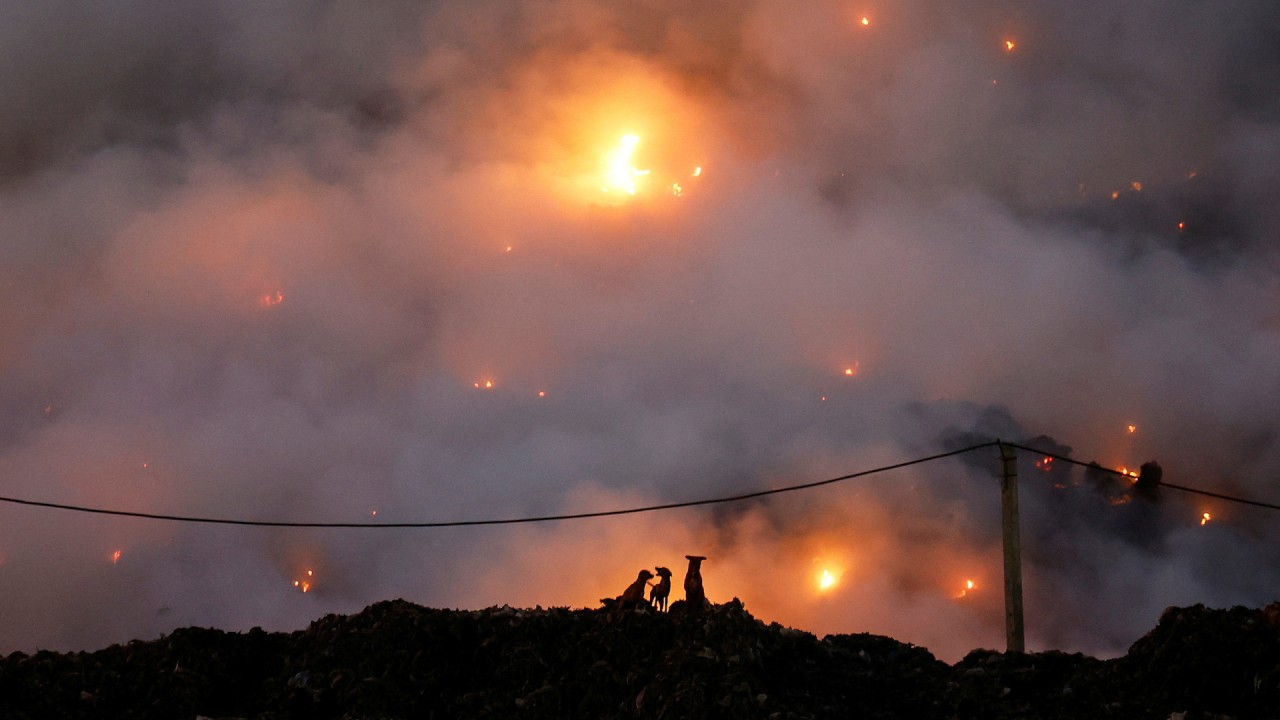
India’s government accused of targeting foreign reporters who have ‘crossed the line’
- A Sri Lankan Australian reporter says her work visa was not extended after she reported on the killing of Sikh separatist Hardeep Singh Nijjar
- Media advocates have urged New Delhi to ‘cease using visa regulations as a tool of repression’ against reporters
Avani Dias, South Asia correspondent for the Australian Broadcasting Corporation (ABC), was busy with work when she received a call last month from the Indian Ministry of External Affairs telling her that her routine visa extension would be denied.
The Australian was told on March 27 that her most recent online news episode had “crossed a line”.
Dias’ experience, and that of French journalist Vanessa Dougnac recently, has raised concerns that India was targeting the media for certain reports that crossed the authorities.
At least 30 foreign journalists wrote an open letter on Tuesday protesting against what they saw as increased restrictions on visas and journalism permits, insisting that Dias’ case was a “cause for concern” and calling on Delhi to “facilitate the vital work of a free press in line with India’s democratic traditions”.
India election: what stands between victory and PM Modi’s ruling BJP?
This Week in Asia was directed to Dias’ recorded statements and clips when the journalist, who declined to comment again on her experience, was approached.
“My visa was due to expire on April 20 and in January I applied for a routine one-year extension which is the regular process,” Dias, who has been based in Delhi for ABC since January 2022, recalled in her final podcast Looking for Modi after returning to Australia with her partner last weekend.
Earlier this month, after lobbying from the Australian government, India at the last minute extended Dias’ visa by another two months. By that time, according to the journalist, she knew she could not remain an independent reporter in the country.
“Avani Dias’ case, along with others like French journalist Vanessa Dougnac who was also forced to leave under similar circumstances, underscores a troubling pattern for foreign correspondents in India,” Kunal Majumder, India’s representative of the Committee to Protect Journalists (CPJ), an American NGO, told This Week in Asia.
Riches to rags: India’s young Jains forgo all for solitary life of seeking alms
Foreign journalists who cover thorny topics involving Delhi often face harassment and pressure, Majumder said. Such incidents violate the rights of journalists and hinder the public from accessing vital information and diverse viewpoints, he added.
“The Indian government must cease using visa regulations as a tool of repression, respect journalists’ ability to report freely, uphold international press freedom standards, and engage in constructive dialogue to protect journalists’ rights.”
According to YouTube’s Community Guidelines Enforcement report released in March, India had the most video takedowns globally with over 2 million clips removed from October to December 2023.
The report revealed that 96 per cent of these videos were marked via “automated flagging” while around 52,000 clips were raised by organisations and only four were by government agencies.
According to a CPJ report, at least 15 journalists have been charged since 2014 under India’s anti-terror Unlawful Activities (Prevention) Act, which allows for detention without trial or charge for up to 180 days.
Figures from the annual prison census show that India had held seven journalists behind bars in the past three years – the highest number since documentation began in 1992.
Six were reporting on India’s only Muslim-majority region Kashmir, where journalists had come under heavy pressure following the government’s 2019 repeal of the region’s constitutional autonomy, Majumder said in the report.
On February 14 last year, the BBC offices in Delhi and Mumbai were raided by Indian tax authorities after a documentary on Modi’s role in the 2001 Gujarat riots was broadcast. Delhi also banned the documentary online using emergency laws.
In January this year, Dougnac, who had lived in India for 22 years, left the country after the government denied her permission to work and threatened to cancel her Overseas Citizenship of India (OCI) card, citing her reports’ “malicious” and harmful to the country’s “sovereignty and integrity”.
“Today, I am leaving India, the country where I came 25 years ago as a student, and where I have worked for 23 years as a journalist. The place where I married, raised my son, and which I call my home,” Dougnac, the South Asia correspondent for French publications LaCroix and Le Point, Swiss newspaper Le Temps and Belgian daily Le Soir, said in a statement.
This Week in Asia has reached out to Dougnac but she offered no comment.
Who invented butter chicken? Indian restaurant chains get into spicy legal drama
‘Play by the rules’
S Venkat Narayan, president of the Foreign Correspondents’ Club (FCC) in India, said the media industry was generally free to operate in the country, even if there might be some journalists whose writing or broadcasting had ruffled feathers.
“There are several thousand working journalists, 100,000 publications, and 1,000 TV channels in India. So if there is a problem all of them would be in trouble but I don’t think that kind of thing is happening,” Narayan told This Week in Asia.
Narayan said journalists have to obey the rules without crossing the line. “FCC is always for the freedom of the press and against any suppression of the journalists, but you have to play the game by the rules.”
According to Narayan, when he raised the separate incidents involving Dias and Dougnac with India’s Ministry of External Affairs, the officials told him that the two journalists had not followed government-prescribed guidelines.
For instance, Dias did not have permission to visit the Wagah border to make a documentary, Narayan said, citing Delhi’s comments.
India’s external affairs ministry did not respond to several requests for comment on the issue.


